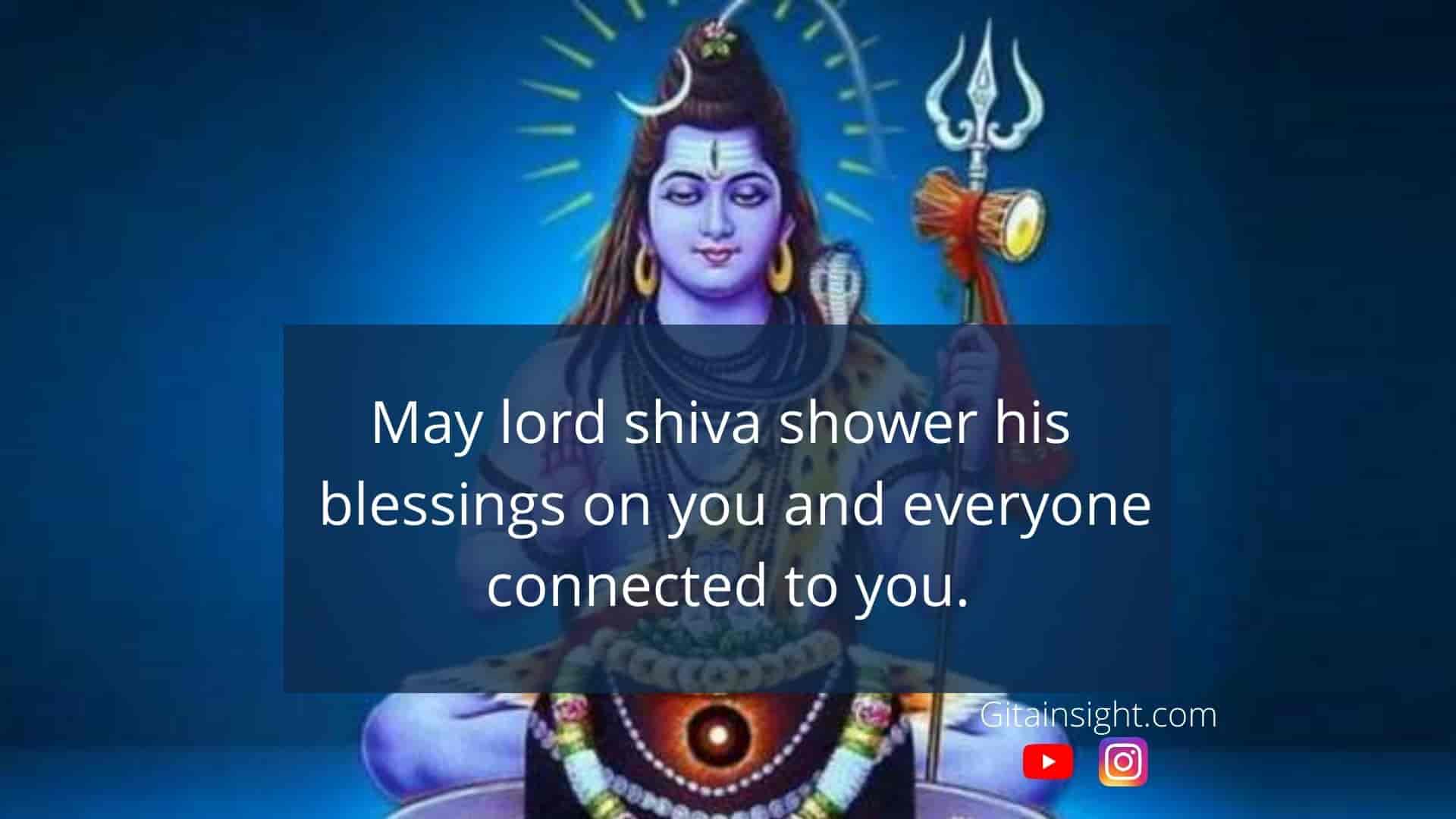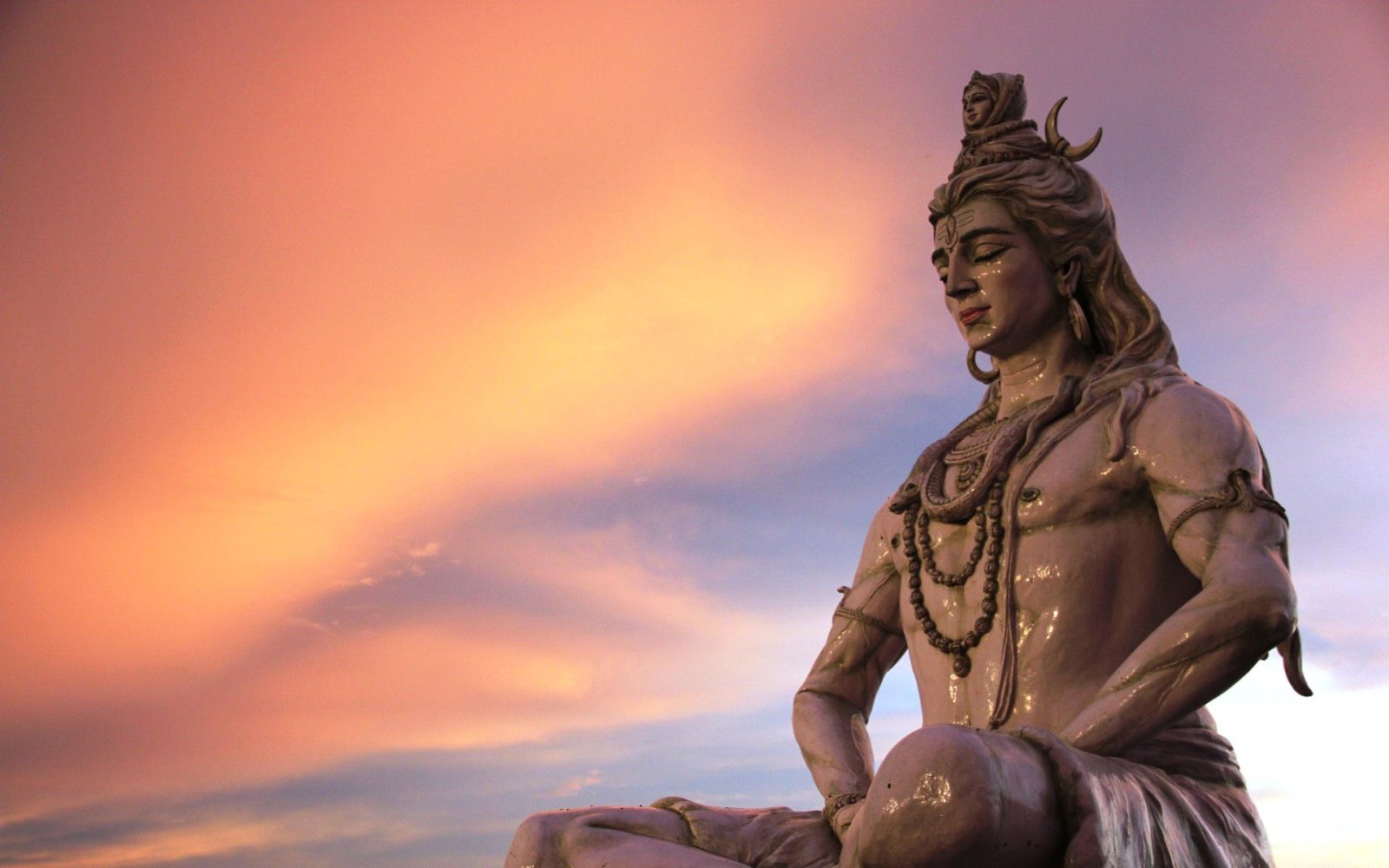The Shiva Purana focuses primarily on Lord Shiva and Goddess Parvati, but refers to and venerates all the gods in Hinduism. The Shiva Purana claims that it once contained 24,000 verses written in the Seven Samantha, however, Purana adds that it was abbreviated and composed by Romaharshana.
The Greatness of Shiva Purana
The Shiva Purana contains chapters with cosmology centered on Shiva, mythology, interpersonal relationships, ethics, Yoga, Tirtha (holy journey), bhakti, rivers and geography, and other topics. The First Samhita (Books) Discusses the Greatness, Significance, Rules and Regulations and the prohibition of listening to Shiva Purana.
Saunaka says:
Oh very wise Suta, O my lord, you know of all the principles of philosophy, please tell me the essence of Puranas in detail.
1.) How do good morals, good deeds, and racism flourish? How do lowly emotions be eliminated by good men?
2.) At this critical time in Kali, all living things have become virtually demon possessed. What is the effectiveness of the same treatment?
3.) Now tell me about the great ways to achieve the most perfect weal, the holiest ways.
4.) What is it, its soul-cleansing habit in particular?
5.) What makes a mentally ill person find Shiva?
Saunaka was the chief scholar of the great sacrifice in the Naimisa forest where the Mahabharata and Puranas were mentioned by the Suta during the reign of Adhislmakrsna, Janamejaya’s grandson and the sixth generation from Arjuna in the Pandava line.
The Sutas preserve the genealogies of the gods, the scholars, and the glorious kings and traditions of the great people. The Suta here is not the category described by Manu as a descendant of the Khathatriya father and Brahman mother. He is a venerable Brahman who preserves ballads, songs, generations of gods, scholars and glorious Kings. He is described as a student of Vasasa.
Suta says:
O chief among the scholars, you are just as blessed as you wish to hear. So I will meditate on the greatest story of the Holy Wisdom and tell it to you. Beloved ones, listen to that divine provision for all religious instruction, increase true devotion, and keep the joy of Shiva. It destroys the great fear of Kala (Death). O sage, it is the venerable shiva Purana previously narrated by Shiva Himself.
For the benefit of the people of the Kali era, Sage Visasa shortened us out of deep respect for sage Sanatkumara for his teachings. Oh sage, nothing but Shiva Purana for mind cleansing especially the people of
Kali age. Only a wise and fortunate man who has accumulated great benefits from his previous birth will be drawn to it.
- The Puranas were first composed by Brahma. Sanatkumara, the son of Brahma inherited from his father and passed it on to Vasasa who also abridged 18 texts.
This Shiva Purana is the largest and most revered in sacred history. It is the Shiva method and therefore should be used and seen in this world. By learning this and listening to a good man he becomes more honest. Either way, you quickly reach the shiva area. Therefore every effort by men to learn this is desirable. Loving care to listen to it brings all the results you want. By obeying this Purana of Shiva man becomes sinless. After enjoying all the pleasures of the world you will reach the region of shiva.
Just by listening to the shiva story a man discovers the merits that result from the work of Rajasuya and the 100 Agnistomas. O sage, those who listen to the highly esteemed shiva Purana of the Sacred lore, cease to be mere mortals. It should undoubtedly be considered the manifestation of Rudra, a form of shiva. Scholars consider the dust on the feet of those who regularly listen to that Purina and recite it, in proportion to the sacred institutions. May those who wish to attain the seat of salvation, always obey the holy shiva Purana with great devotion. O noble among the wise, if he can not hear it always, let him hear a brief moment every day his mind is fully controlled.
- Rajasuya is the great sacrifice made by the king of the universe (in which tributary officials also take part) during his inauguration as a symbol of his irresistible kingship.
- Agnistoma is a sacrificial ritual that lasts a few days in the spring and forms an integral part of Jyotistoma.
If anyone can listen daily, O sage, let him listen to shiva Purana in the holy months. Those who listen to the Purana even in Muhurta (48 minutes), half of that period, a quarter of that period or even just a moment will not be mistreated. the sea of worldly life after burning the vast forest of Karma (binding actions). Oh sage, the virtue found in every gift and every Sacrifice recovers after listening to Shiva Purana.
Especially in the time of Kali, there is no greater virtue that helps to gain freedom through men, O sage, than to obey Shiva Purana. There is no doubt about it, listening to Purana and pronouncing shiva words is as effective as kalpadruma tree in fulfilling human desires. For the benefit of the Kali people with a bad sense of morality, who do not have good morals, Lord shiva has produced nectar in the form of shiva Purana.
Kalpadruma is a fairy tale tree that should give all the wishes.
An unmarried man, a man who drinks nectar, does not die and does not grow old. But the nectar of the divine story of shiva, when drunk, keeps the whole family immortal and immortal. The story of the sanctification of the shiva Purana should always be addressed, of course. Just by listening to Shiva Purana (if the results are so good) what will I say about the result when shiva stays in the heart?
This work contains twenty-four thousand verses divided into seven Samhita (groups). Three types of devotion are fully described in it.
1. By meditation
2. Repetition of prayer
3. Acts of worship and service
It must be listened to with great respect.
Seven Samhita or Compendiums of Shiva Purana Are
- VidyeSvara Samhita
- Rudra Samhita
- Sata-Rudra Samhita
- Koti-Rudra Samhita
- Uma Samhita
- Kailasa Samhita
- Vayaviya Samhita
Thus, there are seven Samhites in this Purana. This divine Purana of the seven Samhitas and called the shiva stands in the same position as Brahman and offers the greatest success of all. One who recites the entire Shiva Purana without leaving any of the seven Samhita can be called Jivanmukta (liberated living soul).
O sazi, the ignorant man is tossed to and fro in the sea of the existence of the world until the magnificent shiva Purana reaches its ears. What good is listening to the many scriptures and other confusing Puranas? The Shiva Purana alone declares aloud (its readiness) to offer salvation. The pulpit of the Shiva Purana becomes a sacred center. It destroys the sins of those who are imprisoned at home.
Thousands of Ashvamedha (horse sacrifices) and hundreds of Vajapeya sacrifices are not worth even sixteen percent of the shiva Purana.
- In Vedic times the Ashvamedha sacrifice was offered to kings who wished for fertility but later, it was made by them to achieve the supremacy of the universe. The horse was allowed to roam at its own pace for a year, visited by a guard; when a horse enters another country, the emperor was obliged to submit or fight, thus the horse returns at the end of the year. A year later, if no enemy was able to kill or kidnap a horse, the animal was directed back to the king’s capital. At that time a sacrifice was to be offered, and the king was to be declared the undisputed king.
- Vajapeya is one of the seven types of Soma sacrifices offered to kings or brahmans who aspire to high office, and preceded Rajasuya and Brhaspatisiri.
O most wise, the sinner is called a sinner until he hears the shiva Purana with great devotion. The holy rivers, Ganga and others, the seven holy cities and Gaya cannot be compared to Shiva Purana.
- The seven Hindu holy cities are Ayodhya, Mathur, Maya (Haridwar), Kasi (Varanasi), Kanchi (Kanchipuram), Avantika (Ujjain), and Dwaraka.
If one wishes the best of intentions (Freedom) one should read at least one brick or part of it from Shiva Purana. One who always listens to the shiva Purana who fully understands its meaning or simply reads it with undoubted devotion is a noble soul. King HaheSana (Shiva) is very happy for a sensible man who listens to Shiva Purana when death is near. Lord Shiva gives him a scat in his hometown. One who loves this shiva Purana with great devotion enjoys in the world all the desirable things and gains shiva loka. Never underestimate his devotion to shiva Purana who keeps this work wrapped in silk cloth, he will always be happy. The sacred Shiva Purana, which is the sole property of the devotee of Shiva, should be used with care by a person desiring happiness here and thereafter.
The sacred shiva Purana which conforms to the four purposes of life (beauty, wealth, love and salvation) should be recited and read with great devotion at all times. The Shiva Purana, the greatest symbol of complete well-being among the Vedas, Itihasas and other sacred texts should be well understood by those who seek salvation. This shiva Purana is the largest resting place of Atman (Spirit Seekers) of eternity; it is a very good thing to be worshiped by good people; suppresses three types of stress (i.e., physical illness, external attacks and divine disasters); it always corresponds to happiness; and it is most pleasing to all the Deva led by Brahma, Hari, and Isa. With a happy mind I bow down to Shiva Purana forever.

The Shiva Puran offers chapters on Shaiva-Advaita philosophy, such as Linga Puran and other Shavism-related Puranas, promoting it as a plan of Salvation. The text also introduces Brahman as a saticitananda theme, with Shiva-Shakti masculine and feminine as unity, and the concept of pluralism as a scientific method. Love-Driven Devotionalism (Bhakti), asserts the text, leads to knowledge, and that love combined with knowledge leads to attracting saints and Guru, and through it one gains Freedom, says Shiva Puran. These ideas, says Klaus Klostermaier, are similar to those found in Devi-related Puranas and Shakti Literature.






